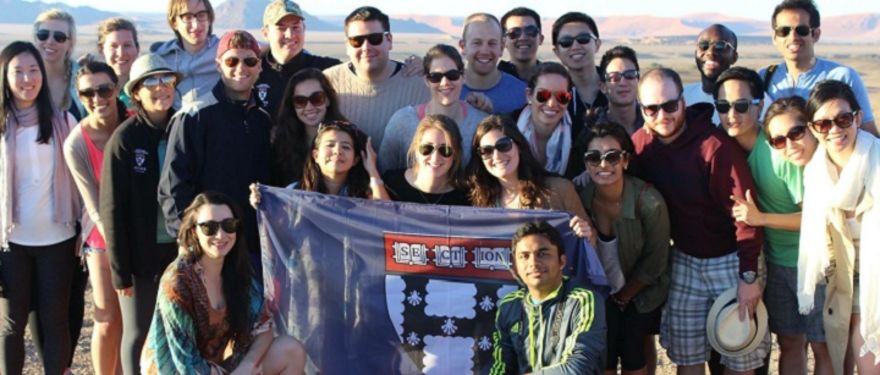I came to HBS with an interest in social impact but without any specific career convictions. Over the past year, the Social Enterprise Initiative (SEI) has been especially influential in guiding my career choices.
Most tangibly, SEI helped me find my summer internship at Draper Richards Kaplan Foundation (DRK) – a venture philanthropy firm. The Initiative also partially funded my internship through its Summer Fellows Program, a sponsorship designed to help students explore career opportunities in social enterprise.
In reflecting upon my summer at DRK, and how it will inform my post-MBA career path, a few lessons stand out.
1. Fall in love with a problem
Largely due to HBS’ social impact efforts, I’ve shifted the way I frame my career thinking. Rather than solely defining my career search by function or company, I think more about the problems that I want to help solve.
I chose my internship at DRK in part because it would allow me to explore an area of interest: food and nutrition in the United States. In the past, I may not have taken this problem-centric approach, as it always felt like there were too many practical constraints and a pressure to just take the best job possible early in my career.
However, I think business school offers a great opportunity to think about one's career in a different way, because (a) we now have a greater ability to add value to a variety of organizations so this approach is less constraining, and (b) as we take on greater leadership responsibilities, our day-to-day work is more closely tied to the ultimate aims of the organization so we can draw more meaning from our work.
Even for those who have yet to fully incorporate social impact into their careers, HBS is a great time to reflect on the big questions of society and how we can eventually use our platform in order to make an impact.
2. Take advantage of opportunities to work with non-MBAs
We are incredibly lucky to spend our first year talking about challenges in life and business with 94 smart, funny, candid, and diverse friends in the same section. This summer, I often found myself imagining what a section mate might think about a certain topic or looking back through my notes to remember some framework. As the summer approached an end, I was eager to see everyone on campus and get back to class again.
On the other hand, I appreciated the change of pace offered by my internship. Although HBS incorporates social impact throughout the first-year curriculum, I enjoyed spending a summer with nonprofit entrepreneurs whose sole purpose is social impact and whose problem-solving approach is often very different than that found in the HBS classroom. Whether by working with nonprofit entrepreneurs, engineers, small business owners, government leaders, or graduate students from different schools at Harvard, there are many ways to work with non-MBAs while at HBS.
3. Think about the values, not just the personalities, of the people you surround yourself with
I realized this summer that it’s not only a question of “will I enjoy being around my teammates” but perhaps more importantly “will being on this team help me to become the type of person that I want to be”? For me, the latter question leads to one of the strongest arguments for getting more involved in social enterprise at HBS, and it has strongly influenced how I’m looking at different post-MBA options.
From choices about work-life tradeoffs, to reading habits, to views on what makes a healthy lifestyle, the values of our colleagues can have a lasting influence on both our happiness and our character.
After all, if I don’t always have the courage on my own to “be the change I wish to see in the world,” I can at least surround myself with people who will help me to become a better person.
TJ Moen is an MBA Candidate in the Class of 2017. Since writing this article, he has accepted a Program Officer position at the Michael & Susan Dell Foundation in Austin, Texas. In his role on the US Health team, TJ will further the Foundation’s efforts to improve children’s health in the United States. After considering opportunities in finance and the social sector, TJ is grateful for an HBS experience that encouraged the consideration of social impact while making this career decision.

